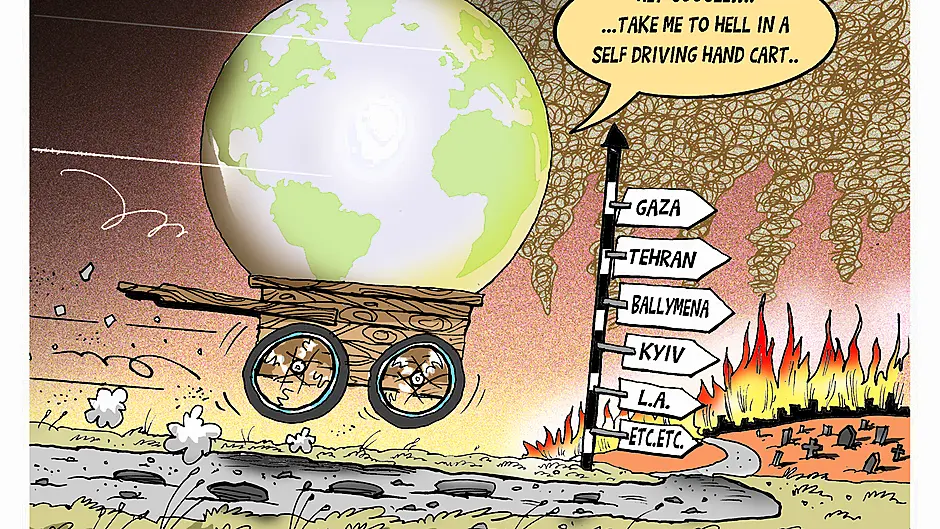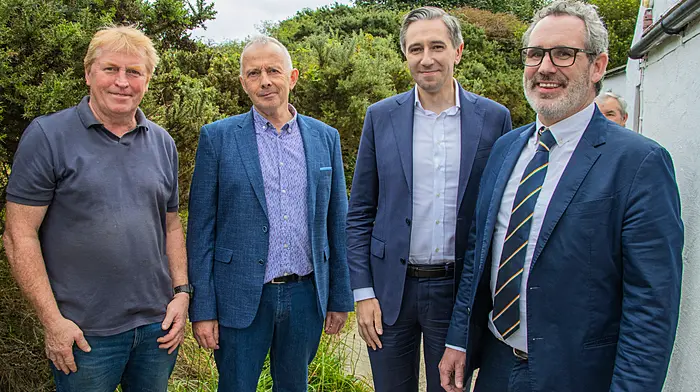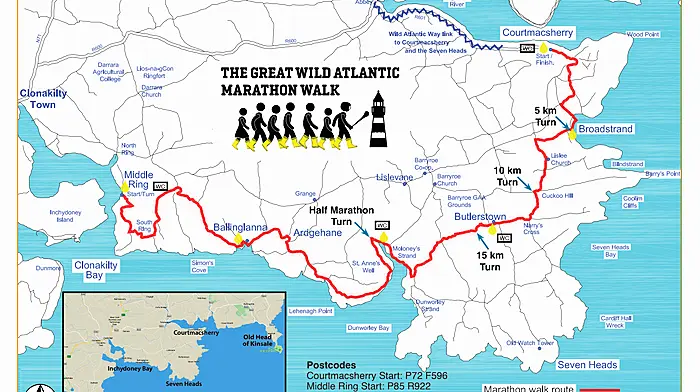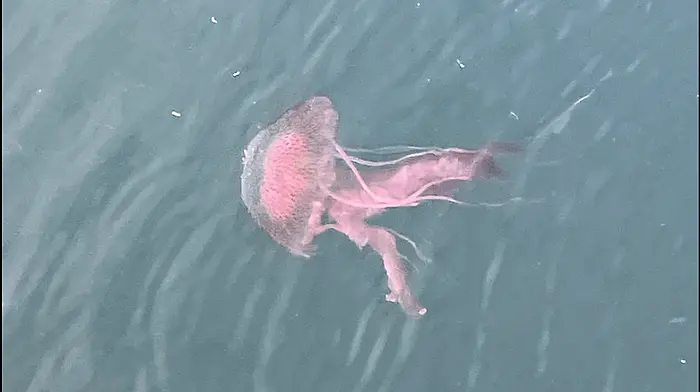
I came back from Annecy, France, with a sunburn, three tote bags full of stickers and badges, and the mistaken belief that I might be able to write something clear-headed about the state of the world for you all.
Annecy, which hosted the 2025 Animation Festival, is a bubble of blue skies, lake swimming, and conversations about the state of TV and the future of animation. It’s an intoxicating, beautiful place, brimming with creativity during the week-long event, and where everyone still believes stories can save the world.
Now I’m back in Dublin, the rain is coming sideways off the roof in a deluge, giving it the feeling of fake rain you see in the movies, and I’m scrolling through this week’s headlines thinking: what’s the point of even trying?
In just seven days: protests and arrests in LA; a horrifying, deadly plane crash in India; a bonfire of rage in Ballymena; a new war between Iran and Israel; US politicians being assassinated in their homes.
It’s hard to write something that lasts longer than a tweet when the world keeps convulsing before the first paragraph is done. My urge to put my head in the sand and write Ten Top Tips To Avoid The Summer Rain feels like a bit of a cop-out.
Things fall apart
The footage from Ballymena this week was grim. Hooded teens and petrol bombs. Homes and cars burned. A targeted, organised campaign of skulduggery and violence that has led to multiple arrests and the injury of over 60 police officers, and forced at least 14 families into emergency housing.
Initial reports pointed to misinformation and a rumour, spread on WhatsApp, about an alleged assault by an asylum seeker. But the fuller picture is even more disturbing: the suspects were two 14-year-old boys, and the rumour escalated after the court appearance used a Romanian interpreter, sparking the false claim that the suspects were Romanian immigrants.
This was not chaos sparked by confusion, but a deliberate pattern of racist intimidation and online hatemongering.
Victims weren’t just random bystanders. They were families targeted for being foreign and for having the audacity to live peacefully in a place that someone decided did not belong to them.
It followed a now-familiar choreography: an unproven accusation circulates on encrypted apps, tensions rise in curated echo chambers, then spills out onto the street in the form of real-world violence. Just days earlier, similar distortions had played out online during the LA protests, where students in costume, chants edited for virality, and a thousand hot takes uploaded before anyone read the context. The Atlantic described it as a distortion loop: events manipulated in real time to fuel outrage.
On the other side, Trump was trying to distract from his own unpopularity by sending in the National Guard and creating a sense that LA was lawless and ungovernable.
It’s that easy now, to create a new reality from a few videos. God help us when artificial intelligence kicks in fully. Has there ever been a more important time to fight for and fund local, trusted news sources?
The words of Yeats (although slightly triggering because they recall the Leaving Cert English Paper II) have been echoing around in my head all week: ‘Things fall apart; the centre cannot hold; Mere anarchy is loosed upon the world….’
and
‘The best lack all conviction, while the worst are full of passionate intensity.’
It’s all about the money
Amid the noise, a quieter but significant headline slipped into view as I browsed the weekend papers: Did NAMA actually do what it was supposed to do?
NAMA, that notorious acronym from darker days, or National Asset Management Agency, was created at the height of the 2008 crash to clean up Ireland’s toxic property loans.
It has now been formally wound down and, on paper, seemed to do well: €74 billion in bad loans were taken on, and it returned a €5.05 billion surplus to the state, with an additional €450 million expected in corporation tax bringing the total contribution to €5.5 billion.
That’s a remarkable outcome, especially given the apocalyptic tone at the time of its formation.
However, NAMA had vast swathes of land and property and had the chance to shape housing policy, influence supply, and tilt development toward public good, if it had been allowed to do so. But it was designed to operate narrowly: to clean up, cash out, and exit.It’s a reminder that sometimes success, as defined by accountants and auditors, looks a lot like failure on the street. Ask anyone in their 30s trying to find a gaff.
Here comes the sun
I try to grasp onto hopeful things every week, dear reader, I really do. There is enough doom and gloom going around. But this week has been a tough one.
For my sins, we’ve even started watching The Handmaid’s Tale again, after a long hiatus, and I am really loving it, despite the fact it is slowly transitioning into a documentary on contemporary America.However, there are things to be hopeful about. I started writing this in torrential rain and now the sun is out and we’re looking good for the weekend. The summer stretches out in front of us with all the promise that entails in this lovely, safe little country.
What’s more, the Cork footballers have a date with Dublin in Croke Park on Saturday evening. I will head along again, despite the risk of it turning into an execution. Myself and Fachtna are nothing if not deluded. Apologises, I mean, ‘hopeful’.
It might be the hope that kills us in the end, but maybe, just maybe, things might turn around…










